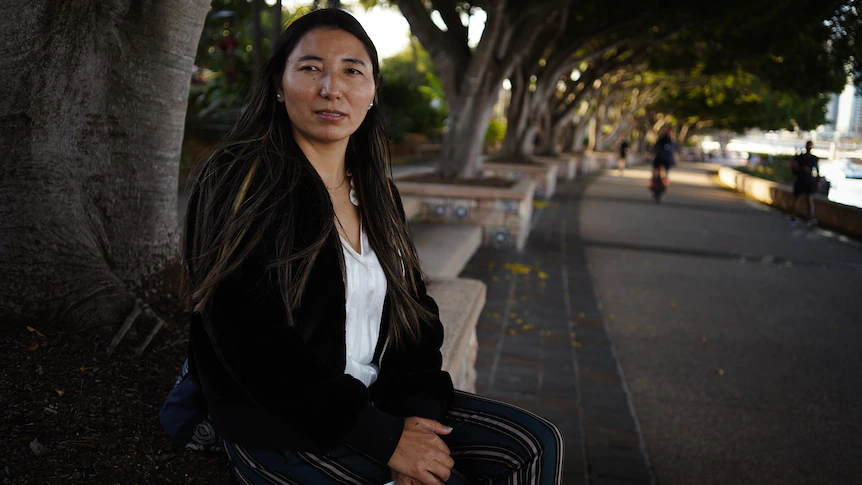
Landing in a foreign country, Tibetan refugee Chungla wasn’t sure of the cultural rules that define Australian life.
“Here is a new culture, new place, everything is new and we feel alone,” she said.
But a new community support program is hoping to change that.
Established last year, the Community Refugee Sponsorship Australia program matches refugees with mentors who help them find their feet.
Chungla was matched with a team of five mentors who helped her learn English.
“We speak with each other and then they talk to us [about] Australian culture and Australian rules … and then I speak [about] my long journey and my past life,” she said.
Chungla said the weekly mentor group helped her overcome a barrier that could otherwise have left her feeling isolated.
“Maybe 70-per-cent problem is English language. It’s very difficult,” she said.
The program helps build key skills for independence and helps refugees access education and employment.
An evaluation of the six-month program has shown it helped refugees by providing them with vital social supports.
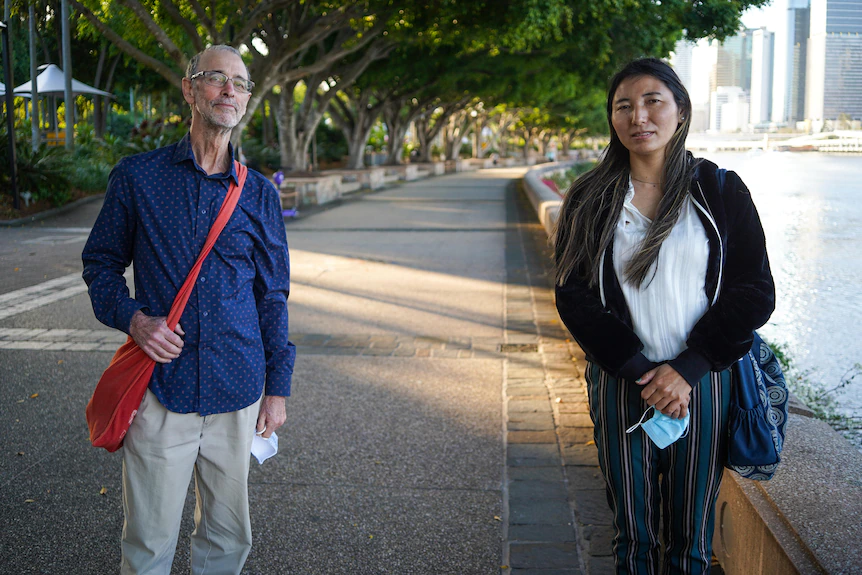
“Sometime I feel if I had problem … then I tell [the] mentor group and then they can help us and it’s very comfortable and like family,” Chungla said.
Dean Pratley, who was one of Chungla’s mentors, said the experience was rewarding for mentors as well.
“For us it was very interesting because we learnt a lot about their culture and there was a lot of sharing,” Mr Pratley said.
The program’s evaluation reported it also fostered more compassionate responses to refugees in communities where mentoring occurred.
‘Learning English takes time’
The benefits of community support programs are well established in Tasmania, where a friendship group for Afghan Hazara women has been running for six years.
When Basireh Azizi came to the country as a refugee she hoped to be safe, that her children would get an education, and that one day she might become a nurse.
But she faced the same hurdles many refugees do: she couldn’t speak English, couldn’t drive, and was in a strange new country.
“My family was in Iran, and learning English for us takes the time,” she said.
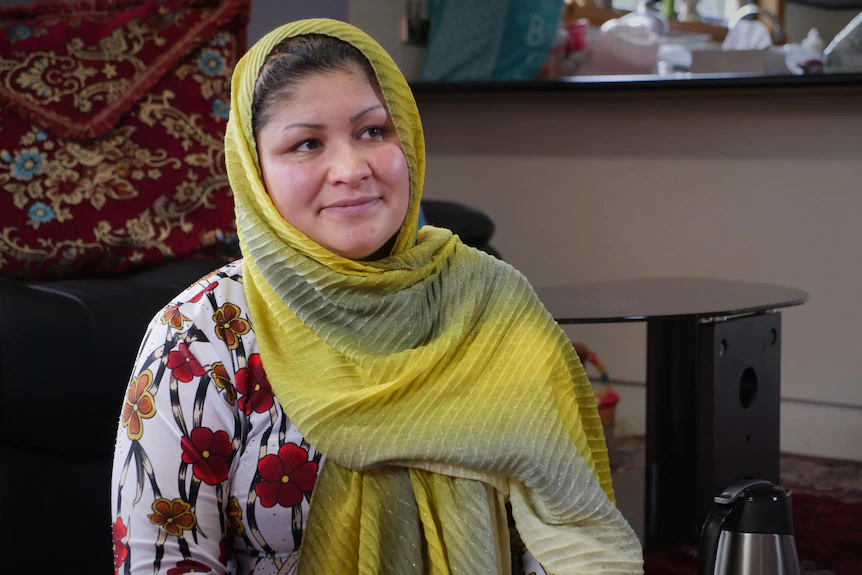
The Women’s Friendship Group started in 2015, meeting every Monday to help women like Ms Azizi realise their hopes.
“We really started as a response to the need,” said Robyn Flittner, a volunteer with the Women’s Friendship Group.
“The Hazara women were telling us the things that they needed in resettlement to make their life better here.”
A key role of the group was teaching English, but in its six years the group has taught bike riding, driving, run women’s health sessions and formed friendships.
But the volunteers in the group are very clear on one thing: they say it is a real privilege being able to walk beside these Hazara people.
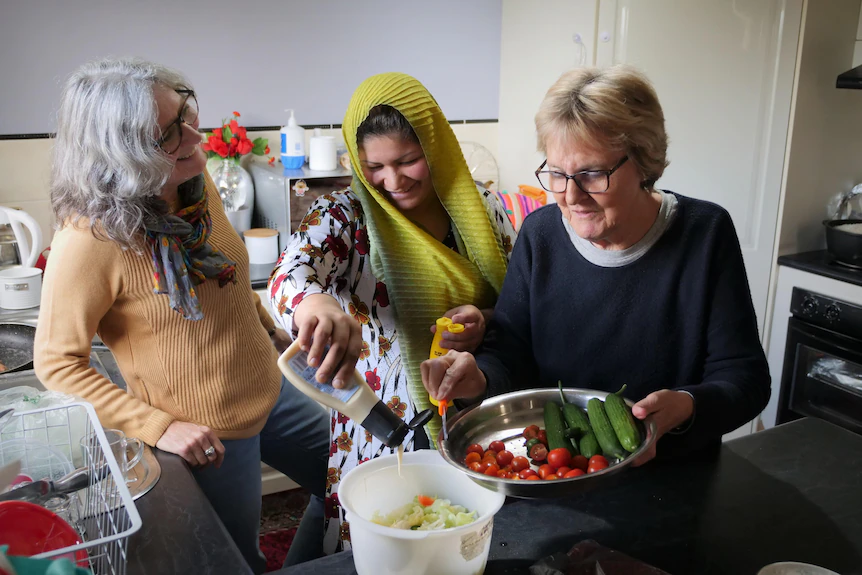
Chance for veterans to give back
The group mentorship program is also a way for veterans of the Afghanistan conflict to give back after the withdrawal of troops from the country.
Timothy Salau served in Afghanistan in 2012. He was moved to start a mentor group after watching the chaos of the withdrawal unfold on television.
“Having served there previously and knowing what would likely happen to those that helped us, it made sense,” Mr Salau said.
“Rather than watching helplessly on television, to actually try to contribute to those that we were able to save.”
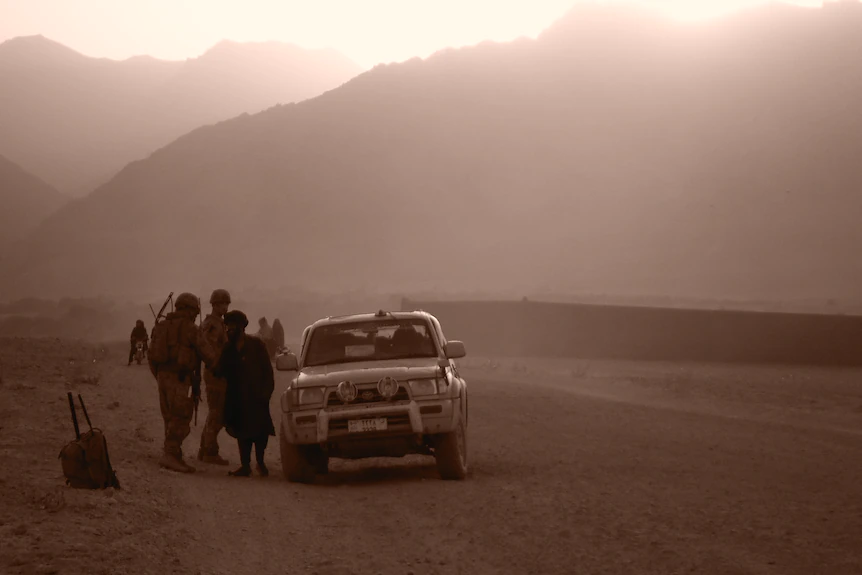
“Rather than engaging with that feeling of hopelessness and moral injury it makes a lot more sense to try where I can to do something.”
Mr Salau said he found it difficult to watch the withdrawal of Australian troops, and this was his way to respond.
“My first instinct was a feeling of shame and really wanting to apologise … even though it wasn’t my burden to shoulder,” he said.
“Having this unaddressed sense of shame and not knowing how to do anything about it was what led to getting involved.”
The unfolding situation in Afghanistan has also been difficult for the Hazara community in Tasmania, with volunteer Ms Flittner describing it as “the most catastrophic thing that’s happened to them since they arrived in Australia”.
“We’re trying to figure out how to support them around that, whether that’s with visa applications or just being there to listen to them cry,” she said.
“Just being there for them and trying to work out the system with them and walk beside them, really.”
Friends that Ms Azizi made through the support group are now helping her file visa applications for family remaining in Afghanistan and Iran.
“I’m very worried, mostly I’m worried about my sister because she has young girls,” Ms Azizi said.
“The Taliban take young girls to the men [who are] 40, 45 years old.”
“The Taliban take young girls to the men [who are] 40, 45 years old.”
Lisa Button, CEO of Community Refugee Sponsorship Australia said there have been a number of veterans putting their hands up to participate in mentoring refugees.
“We can really see this initiative scaling up around the country to help Afghan evacuees and refugees as well as refugees arriving from other countries,” Ms Button said.
Key points:
- A new national program is supporting refugees by pairing them with local mentors
- The mentors help with language skills and visa applications
- Tasmania has a multitude of community support programs

